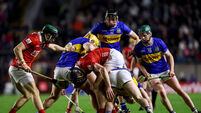'Mississippi burning' trial begins
Testimony begins today in the murder trial of Edgar Ray Killen, a one-time Ku Klux Klansman charged with killing three civil rights workers in Mississippi in 1964.
The murders of Michael Schwerner, Andrew Goodman and James Chaney, who were helping register black voters during the “Freedom Summer” of 1964 and were investigating a church burning the night they disappeared, galvanised the civil rights movement and helped win passage of the Civil Rights Act of 1964.














